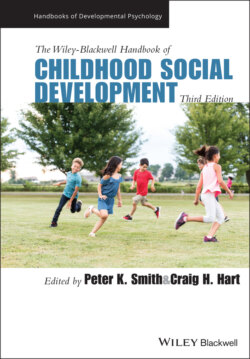Читать книгу The Wiley-Blackwell Handbook of Childhood Social Development - Группа авторов - Страница 80
CHAPTER FIVE Historical Developmental Psychology: Changing Conceptions of Child Development
ОглавлениеWillem Koops
To understand and develop ideas on childhood, child development, and education, empirical studies of children’s behavior cannot suffice. Apart from “normal” empirical analytical knowledge, or rather datasets, it is very important to study the cultural‐historical context of this “normal science” and its predecessors (Koops & Kessel, 2017; Mintz, 2017).
In this chapter we first revisit the philosophical foundation of developmental thinking and its application to understanding children. This brings the reader to the great German philosopher Kant, and to the founder of child development and education, Rousseau. In particular, Rousseau’s book on the boy Émile will be presented as the core publication of modern thoughts on childhood and education, followed by the reception of this book by historical founders of developmental psychology and pedagogy in Germany, Switzerland, and The Netherlands.
After the explanation of the role of Enlightenment thinking in terms of “progress” and development, it will be made clear that one essential feature of the Enlightenment philosophy is disputable: the unjustified belief in “progress.” This idea of “progress” is fully present in the original developmental ideas of Rousseau, and also of his later follower Piaget. It will be explained in this chapter that neo‐ and post‐neo‐Piagetian research essentially leads us back to the insight that children are serious interlocutors at a much younger age than we have been inclined to think since the Rousseau‐Piaget tradition (Koops, 2016).
Research on the tenability of Ariès’ hypothesis on infantilization will be presented to demonstrate that he was right in claiming that infantilization was increasing over the last few centuries. On the other hand, it will be demonstrated that since the 1950s the infantilization came to an end. This discussion will be connected to Neil Postman’s ideas on the disappearance of childhood.
Finally, it will be concluded that the study of the cultural history of childhood and child development makes clear that child development is less (biologically) continuous than has been the assumption since Rousseau. Post‐neo‐Piagetian research (for example about the Child’s Theory of Mind), makes clear that children are much more serious, if not adult, interlocutors. We may speak of a historical reframing of childhood, with numerous new possibilities for pedagogy and education.
